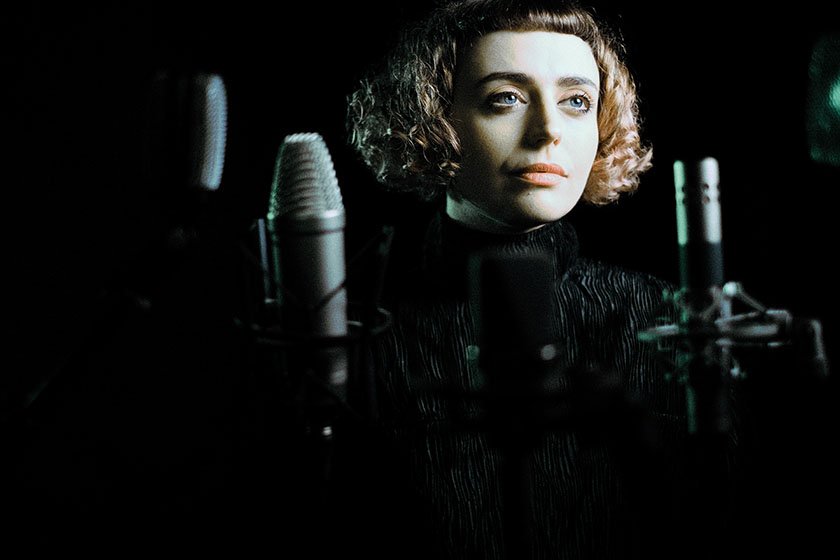AMY SPENCER
woman looking away from microphones
What can you create with just the voice and technology? What happens when you combine something ‘feminine' and ‘bodily’ with something ‘masculine' and 'rational'?
For the majority of my life, I have been immersed in music through my practice as a singer and songwriter, studying music at school and university, or within my work at record labels. During this time, I have been given opportunities to be in several studio spaces, amongst state of the art equipment and many established producers, and I have been asked my opinion on the way music has been produced. Yet, I have almost always felt uncomfortable voicing my thoughts. Now I ask myself, why did I feel unable to speak up? What is it that makes me and many other women feel this way? At my high school, I was fortunate to study creative subjects including music technology at A-Level, and when I arrived to study Popular Music at Goldsmiths in 2011, I was offered the chance on many occasions to embrace music production, but I still shied away from the idea that I could produce music, and preferred to collaborate with other students on the course while focusing on my voice and songwriting. Years later, I returned to Goldsmiths during the pandemic for the Masters degree in Creative Practice. With my voice as my main instrument, I found myself with only this and technology, creating music which opened me to the contrasting worlds of limitation and freedom, all at the same time.
After studying a module in feminism and cultural theory during my degree, and researching the representation of female pioneers in electronic music, it was apparent that the huge lack of representation in the field throughout my time growing up and while working within music has played a big part in why I was so unconfident with it. For my final project, I wanted to consider this lack of representation, but also to turn it into practical research by combining the ‘feminine' and ‘bodily’ connotations with the voice, contrasted with the ‘masculine' and 'rational' connotations with technology and just see what came out. I improvised and almost completely rid myself of any songwriting rules to create thirty minutes of explorative music. By making this work, I sought to understand why prescribed gender roles make their way into the music studio, and how this can impact the ability for women to work with technology in their music. I believe that there is something feminist about just letting what happens be and exploring the beauty in the final outcome not being ‘perfect’ – there is no ‘right’ or ‘wrong’ way to produce or compose music, that is just another example of the rules that have previously been set out for us as artists, musicians, and producers by the binary society we live in.
By experimenting, and at the same time learning how to use the instruments and tools I already had, I carved out a sound that draws on the musical references and theories of feminist scholars and musicologists, as well as from my musical and personal experiences. The outcome of this is a ‘feminist epistemology’ to music production, where I explore notions of gender and attempt to confront the disturbing imbalance of masculine bodies within the field. It is a creative production of thirty minutes, made solely with my voice and technology – no additional sounds, just me, my voice and processing. The outcome of this is distant and close at the same time; layered with noise and hiss; fragmented with words colliding with noises unexpectedly; referencing the past and the future; between an experimental piece of music and song; a glitch somewhere in the middle between ‘masculine’ and ‘feminine’.
Click here for a private Soundcloud playlist to https://on.soundcloud.com/ztvTZ
I will soon release this music under the project Ammonite. Instagram.
I also release music as Charlotte Spiral. Bandcamp | Instagram.
Photo credit: Morgan Sinclair. Instagram.

